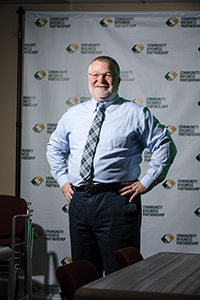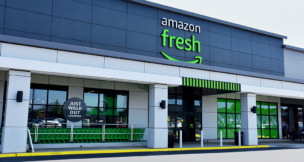Firing up Fairfax
Economic powerhouse takes steps to rebound from pandemic
Rich Griset //June 30, 2020//
Firing up Fairfax
Economic powerhouse takes steps to rebound from pandemic
Rich Griset //June 30, 2020//
By the numbers, Fairfax County should be the envy of every locality.
As the headquarters for 11 Fortune 500 companies, the county is home to a large concentration of educated, high-income earners and boasts one of the biggest suburban office markets in the country, second only to Los Angeles.
Two years ago, data from the American Community Survey showed that the county’s McLean community was the third-wealthiest locality in the nation.
Last year, the Fairfax County Economic Development Authority worked with 131 businesses on expansions or relocations, which added 10,057 jobs to the county economy.
Tysons, a Capital Beltway community that has a 50-year plan to transform itself from the quintessential “edge city” — a term for a nexus of business, shopping and entertainment outside of a traditional downtown — into a full-fledged city of skyscrapers and high-density residential housing, has a number of new developments under construction or in the planning phase. One of these, The View, will include a residential building that will be the tallest in Virginia and the D.C. metro area — even taller than the Washington Monument.
There’s another set of statistics that reflects less favorably on Fairfax County, however. As of June 1, the county made up a quarter of Virginia’s COVID-19 cases and had more reported deaths from the novel coronavirus than any other locality in the state.
A helping hand
Though the county has the greatest number of COVID-19 cases and deaths in Virginia, it’s also the state’s most populous locality, so it fares better in a per capita comparison with other cities and counties. Still, Fairfax County is undoubtedly one of the places hardest hit by the pandemic in Virginia.
As such, it began entering Phase One of Gov. Ralph Northam’s “Forward Virginia” plan to ease public health restrictions on May 29, two weeks after most of the state.
By that time, more than 73,000 unemployment claims had been filed in the county and not even some of Fairfax County’s largest companies have been immune from the pandemic’s economic impacts.
On May 13, Tysons-based satellite operator Intelsat filed for Chapter 11 bankruptcy in the hopes of eliminating roughly half of its $15 billion debt load. DXC Technology, a B2B IT servicer based in Tysons, is eliminating 4,500 jobs in the hopes of countering $2 billion of “revenue runoff.” McLean-based Hilton Worldwide Holdings Inc. has laid off tens of thousands of employees, including more than 20% of its corporate workforce. McLean-based Gannett Co. Inc., America’s largest newspaper publisher, has instituted layoffs, furloughs and pay cuts; in late May, S&P Global Market Intelligence stated that Gannett’s “one-year market signal probability of default” was 38.2%.
In response to the pandemic, Fairfax County’s local government and business community have enacted initiatives to help those suffering from the economic crunch. One of the county’s first efforts was the establishment of the $2.5 million Fairfax County Small Business Microloan Program. Funded through the Fairfax County Department of Economic Initiatives and administered by the Community Business Partnership, a Springfield-based nonprofit promoting small business growth, the program has provided 125 microloans to businesses with fewer than 50 employees. More than 1,700 businesses and nonprofits applied to take part in the program.
“Given the interest and the response, we know that it’s something that businesses found would help them out to get them through this period,” says Rebecca Moudry, director of the Fairfax County Department of Economic Initiatives. “We’re looking to help businesses survive, to hang on, so as our economy begins to come back, those businesses — especially our small and local businesses — are around and can rebound.”
Additionally, the Fairfax County Board of Supervisors approved a $25 million small business relief fund program in mid-May to allocate grants for 2,000 to 2,500 businesses and nonprofits. On top of that, the town of Vienna has allocated $1 million to the Fairfax RISE — or Relief Initiative to Support Employers — program, increasing the total RISE grant award amount to $26 million. All funds are expected to be distributed by mid-July.
Jeff McKay, chairman of the Board of Supervisors, says the county is using money from the federal Coronavirus Aid, Relief, and Economic Security (CARES) Act to support the fund, noting the popularity of the microloan program.
“We expect our grant program to be even more popular, and of course the board reserves the right to add additional funding to it in the future,” McKay says. “I know [the board and I are] committed to helping all of our small businesses through this trying time.”

Hard hits
Mark Scarano, executive director of the nonprofit Community Business Partnership, which promotes local and regional small business growth, says a lot of businesses are hurting right now.
“We’ve heard our definite share of sad stories,” says Scarano. “It’s serious out there. A lot dried up really quickly. We’ve had people calling up that we’ve been working with before that were doing great. They had great plans, and their profits, their revenues, were doing great and suddenly this happened and we don’t know how they’re going to survive.”
Scarano’s organization has seen a “huge surge” in new companies contacting them for help. “Just about every sector for small business, we saw an application for,” he says. “This has affected just about everybody.”
The Northern Virginia Economic Development Alliance, a regional economic development group, has created a 12-part webinar series to help businesses during the pandemic. The series is taking place over 18 weeks and has been segmented into three phases to address the pandemic: response, recovery and growth. In an effort to counter layoffs, the Fairfax County Economic Development Authority has also updated workinnorthernvirginia.com, a website it was developing as a talent attraction tool, to include job listings for companies doing “surge hiring” right now, such as Amazon.com Inc.
Victor Hoskins, president and CEO of the Fairfax County Economic Development Authority, says the service and retail industries have been hit particularly hard in the county.
“We’ve lost like 73,000 jobs in our high-hit sectors – hospitality, food and beverage, restaurants, breweries, retail of all sorts,” Hoskins says. “Those layoffs, particularly for hotels and these other larger employers, have really had a large impact on us.”
Though the county has eased restrictions on restaurants, fitness facilities, beauty salons and barbers, retail businesses and houses of worship, the pandemic’s impact is still being felt.
“The retail segment is really where we’re being hit the hardest,” says Alex Iams, executive vice president of the Fairfax County Economic Development Authority. “They’ll have to re-recruit all of their employees. That’s their No. 1 challenge going into the next phase of the crisis.”
On the rebound
Regarding the numerous new developments in the works for Fairfax County, Hoskins says construction projects currently underway are moving ahead, but those not yet started are slowing progress.

President and CEO Victor Hoskins. Photo by Stephen Gosling
“We’ve kind of noticed a little bit of a pause on the big decisions since the COVID situation started,” says Hoskins. “I don’t think they’re going to stop, I think they’re going to take longer. … If they’re in the ground and they’re starting to build, then they’re finishing.”
Sol Glasner, president and CEO of Tysons Partnership, a nonprofit association of stakeholders promoting growth in Tysons, agrees.
“I do not see a long-term impact on the process of development,” Glasner says. “Projects may slow down a little bit and then accelerate later. I’ve not heard of anyone who has put a project on hold.”
Even if Tysons does see some slowdown from the pandemic, Glasner emphasizes that its strategy for growth is a 50-year project as laid out in Fairfax County’s 2010 Tysons Comprehensive Plan.
“Economic times will ebb and flow,” Glasner says. “There may be a pullback, but in the grand scheme of things, we will continue to move forward.”
Part of the county’s reopening efforts were thrown a curveball in late April when the Metro transit system announced that it would be closing six Orange Line stations and its entire Silver Line from May 23 until at least Labor Day. According to Glasner, Metro didn’t contact local community and business leaders about the announcement beforehand.
“For us in Tysons, that’s a very, very significant issue, and made doubly so because right now, over the summer, we can anticipate efforts to reopen, efforts to restart the economy,” he says, noting that many employees — particularly those in retail — rely on Metro to get to work. “If stores are looking to reopen, they can’t really even begin to do that without their employees.”
Nevertheless, there’s still good economic news to be found in the county, despite the pandemic. In late May, Microsoft Corp. announced that it would invest $64 million to establish a new software development and R&D regional hub at Fairfax County’s Reston Town Center, creating 1,500 jobs. The 40,000-square-foot facility is expected to be ready for employees next summer. Additionally, it was announced in May that Tysons-based Booz Allen Hamilton Holding Corp. had inked a $800 million deal with the Department of Defense for new artificial intelligence-enabled products.
Noting that he and many of his contemporaries weathered previous challenges, such as the Black Monday stock market crash of 1987 and the 9/11 attacks, Hoskins compares the durability of Fairfax County’s business community to that of annealed steel.
“We come back. We are resilient people. Our character is hard metal. You heat us up, we just get tougher,” he says. “It’s not going to be easy, but we’ll come back from this, just like we did before.”
Subscribe to Virginia Business.
!



















